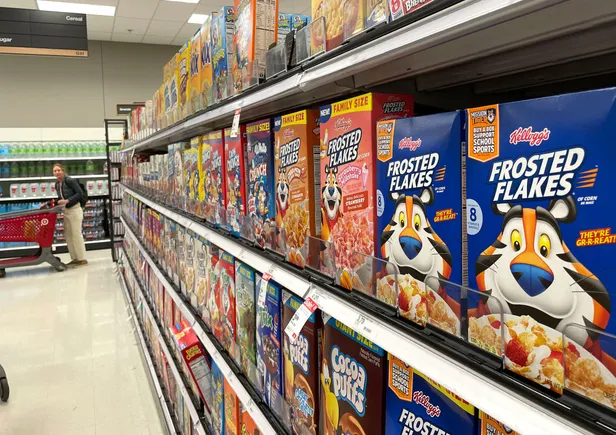The food and beverage sector is facing uncertainty as the threat of another trade war looms over the industry. With President Donald Trump’s use of tariffs to reshape global trade policy, companies in the food and beverage sector are bracing themselves for potential impacts on their supply chains and production costs.
Experts predict that the industry is likely to respond to tariffs by either raising prices or quietly cutting costs through measures such as smaller portion sizes or ingredient reformulations. The perishable nature of food products makes it harder for companies to prepare for the effects of tariffs, especially since many rely on other countries for key ingredients or packaging materials.
Canada and Mexico are significant suppliers of key ingredients for the food and beverage industry, such as oats, cocoa, beverages, and metal and paper products for packaging. Tariffs on these imports could lead to increased production costs for companies, affecting their profit margins.
While some food and beverage giants may be able to adjust their supply chains or product offerings to mitigate the impact of tariffs, not all companies have the flexibility to do so. Businesses in the fresh fruit and vegetable sector, for example, may struggle to absorb higher costs and may be forced to pass them on to consumers.
Food and farm groups have been advocating for exemptions for certain ingredients that cannot be grown in the U.S. to avoid further price increases for consumers. The industry is urging the administration to take a strategic approach to achieving its trade goals without unduly burdening consumers with higher prices.
Overall, the food and beverage sector is facing a challenging time as it navigates the uncertainties of trade policies and tariffs. Companies will need to be agile and innovative in their responses to these challenges to maintain their competitiveness in the market.


